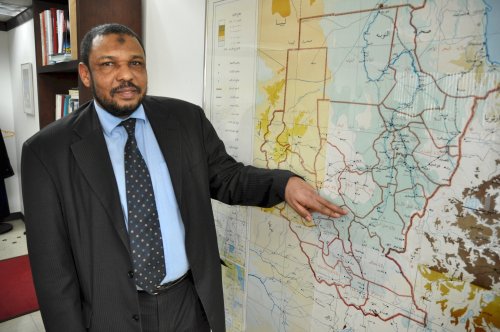Earlier this month the world woke up to the news of the establishment of a new country in Africa.
South Sudan, for lack of a better name it seems, seceded from Sudan after years of political wrangling and intense internal and international pressure.
But with this new horizon comes gigantic challenges for South Sudan, while it lightens Sudan’s load.
“Things are improving with the United States, the Europeans also, and there are good indications that the Darfur problem will be resolved soon, we believe things will be better for Sudan,” said Sudan Ambassador Tageldin Elhadi to The Korea Herald during his first interview since the election results were made public.
Sudan’s President Omer Al-Bashir has clearly stated that Sudan will and is accepting the results of the referendum and has confirmed that his country will assist in building the new nation.
As it stands now, South Sudan has no revenue stream except for the oil it inherited with its separation.
“They have this oil so they need our help and they signed already an agreement with the Khartoum government to continue to participate in the production and protection of the oil,” he said.
South Sudan, for lack of a better name it seems, seceded from Sudan after years of political wrangling and intense internal and international pressure.
But with this new horizon comes gigantic challenges for South Sudan, while it lightens Sudan’s load.
“Things are improving with the United States, the Europeans also, and there are good indications that the Darfur problem will be resolved soon, we believe things will be better for Sudan,” said Sudan Ambassador Tageldin Elhadi to The Korea Herald during his first interview since the election results were made public.
Sudan’s President Omer Al-Bashir has clearly stated that Sudan will and is accepting the results of the referendum and has confirmed that his country will assist in building the new nation.
As it stands now, South Sudan has no revenue stream except for the oil it inherited with its separation.
“They have this oil so they need our help and they signed already an agreement with the Khartoum government to continue to participate in the production and protection of the oil,” he said.

For example, Sudanese military and security personal are now responsible for protecting the petroleum infrastructure in South Sudan.
Another major hurdle Sudan will be helping its southern neighbors with is building water treatment facilities and dams to harvest this valuable commodity.
But separation is not always that easy ― there are still questions of land rights, demarcation lines to draw, refugees, and a slew of other issues that both sides will be discussing until July 8 when the transitional period comes to an end and South Sudan can start becoming an integral part of the international community.
One issue that has been decided is regarding the oil pipelines that travel from South Sudan to the northern ports of the Red Sea. Feasibility studies conducted by independent contractors found that there were no other options available.
The final result stated that South Sudan should keep its already established links with the north due to the unavoidable greater distance going east and the topography of those lands.
Also, the cost of building new pipelines is greater than the revenue expected from exporting that oil.
“The quantity of oil in South Sudan is expected to run out within a few decades,” he said.
This means that during this time, both sides will have to discuss transit costs for the usage of those pipelines inside Sudan.
Another big issue is the question of Sudan’s foreign debt, which exceeds $21 billion.
Diplomatic insiders have noted that Sudan will require extraordinary levels of program assistance and debt relief to manage this foreign debt which is more than the country’s entire annual gross domestic product.
“This foreign debt is supposed to be shared between both countries, we also have the question of citizenship, borders and the question of Abyei,” said Elhadi.
Concerning the fate of the Abyei referendum, the oil-producing region was supposed to hold a referendum to decide whether it will remain in the north or be transferred to South Sudan but it has been delayed due to disputes between both sides regarding who is eligible to vote.
There has been a lot of talk in the media that Sudan will crumble after losing a valuable stream of revenue coming from the South but Elhadi noted that this is not the case.
“Recently, new surveys showed that oil is available in many areas in the northern part of Sudan where the production process has already started,” he said. “Production is expected to reach up to 500,000 barrels per day by next year.”
Elhadi also pointed out that Sudan is blessed with “very rich agricultural resources” including 86 million hectares of arable land, 120 million heads of livestock, 116 million hectares of forests and rangeland and an “un-quantified” reserve of underground water and gold.
By Yoav Cerralbo (yoav@heraldcorp.com)
















![[KH Explains] Hyundai's full hybrid edge to pay off amid slow transition to pure EVs](http://res.heraldm.com/phpwas/restmb_idxmake.php?idx=652&simg=/content/image/2024/04/18/20240418050645_0.jpg&u=20240418181020)

![[Today’s K-pop] Zico drops snippet of collaboration with Jennie](http://res.heraldm.com/phpwas/restmb_idxmake.php?idx=642&simg=/content/image/2024/04/18/20240418050702_0.jpg&u=)